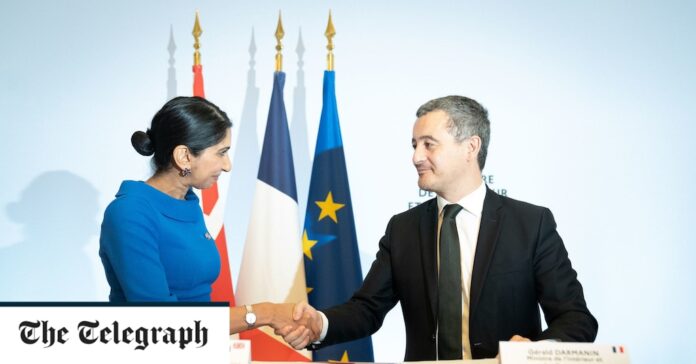Whether an increase in French patrol officers from 200 to 300 and the deployment of drones will make any difference is debatable
There was a distinct sense of dejà vu as Suella Braverman travelled to Paris yesterday to sign yet another agreement with her French counterpart to tackle the cross-Channel migrant crisis. Most of her predecessors in the Home Office going back to David Blunkett 20 years ago have struck similar deals, yet the traffic keeps coming.
Back in 2002, the main route into the UK was in the back of a lorry; now it is by dinghy and coastguard rescue vessel. This suggests, at the very least, that these Anglo-French initiatives look good on the day but do little to address the long-term issue of movements of people seeking entry to the UK. The latest agreement involves a further cost of £8 million to the British taxpayer in addition to the £52 million already being paid annually to France to increase patrols along the coast.
Paris says it has stopped thousands of crossings but people traffickers still manage to find ways to get round any controls. So far this year 40,000 migrants have crossed the Channel – 1,500 at the weekend alone. Whether an increase in French patrol officers from 200 to 300 and the deployment of drones will make any difference is debatable. British officials will be attached to French units, but there have been joint arrangements for years without obvious success.
France has an interest in keeping migrants from gathering in the Pas-de-Calais, just as it did 20 years ago. It blames Britain for not doing enough to stop the country becoming a magnet for people seeking a new life. But the EU also has influence here. Many cross-Channel migrants are young men from Albania who seem to be able to travel through Schengen countries at will. Can anything be done to stop this?


